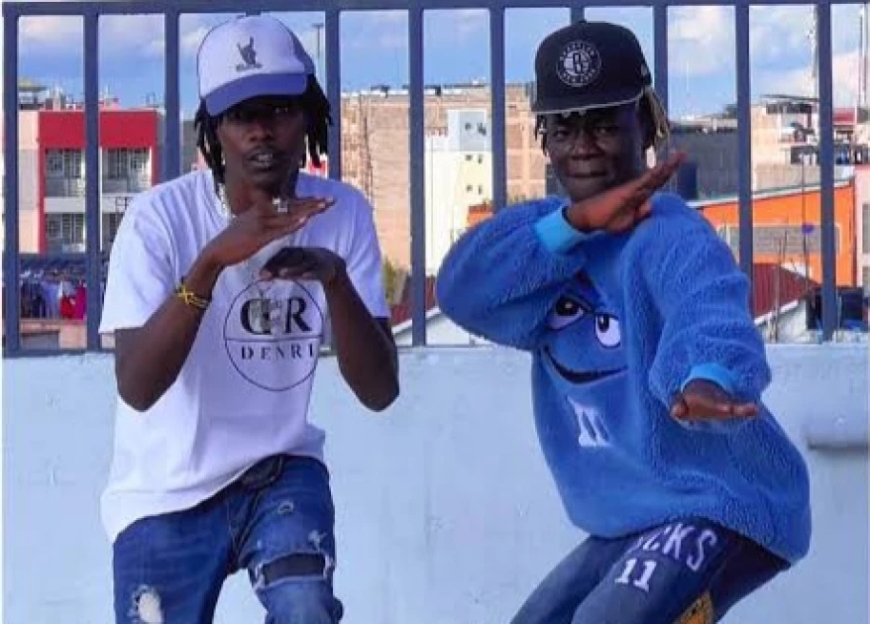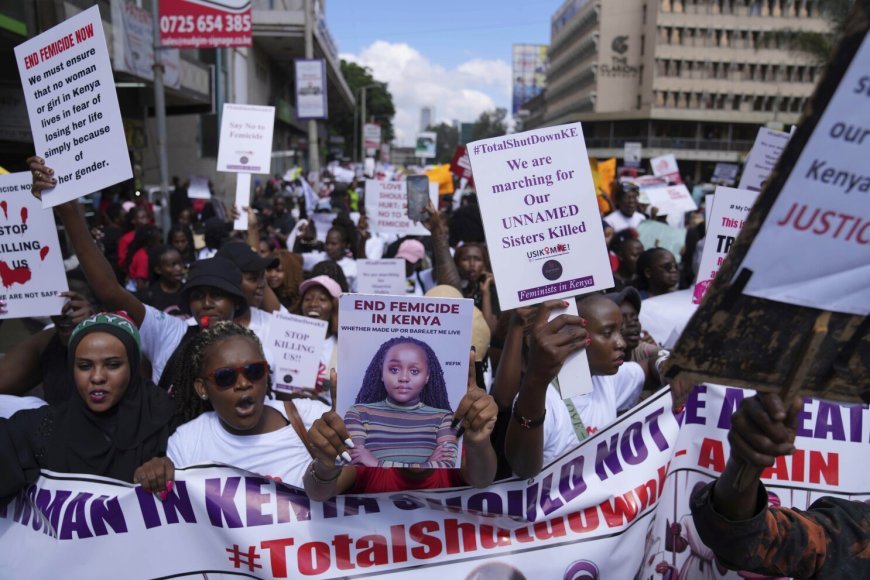Viral 'Mapangale' Dance Named In Latest Report On Femicide In Kenya
It revealed that 170 women were killed in 2024, an increase from the annual average of 85 cases recorded from 2016 to 2023.

A new report on femicide in Kenya showed that 2024 was the deadliest year on record for women in the country and the issue appears to be worsening despite unprecedented media coverage and public discourse surrounding the matter.
The report was released on Monday, January 27 titled Silencing Women: Tracking and humanising femicide cases in Kenya, by Odipodev, a data analytics and research firm and independent investigative media company Africa Uncensored.
It revealed that 170 women were killed in 2024, an increase from the annual average of 85 cases recorded from 2016 to 2023. This however excluded the Kware cases, though included 18 cases confirmed by the Mukuru Social Justice Centre, in which Collins Jumaisi Khalusa later confessed to killing 42 women.
However, an intriguing finding was the link between femicide and other murders to the viral dance style called ‘Mapangale’, which had been trending on social media since November 2024 but attracted controversy owing to its violent gestures.

Thousands protest against increasing violence against women in Kenya on January 27, 2024. /AP
The report depicted how violence is evolving, with perpetrators leaning into more accessible, intimate, and brutal methods. There has been an increase in the number of cases that involve sexual assault before murder, by 7%. The same goes for hacking, with a 6% increase in prevalence.
"Perpetrators are also increasingly using bladed weapons,(often easy to access home cutlery) rather than methods like strangulation. In the midst of the “Mapangale” craze, there are a number of gruesome killings with several mutilations, fire burns and even someone being doused in acid," the report read in part.
'Mapangale' involved two dancers facing each other, moving and swaying while gradually lowering their bodies. They use their arms to imitate the actions of cutting their partner with a panga.
Anyone may dance on their own; all one has to do is follow the up-and-down movements while feigning to slash oneself from the neck down to the shoulders and around the arms.
When it first emerged, Tiktok was inundated with videos of the dance style, and some of the most well-known creators joined in, contributing to its unstoppable popularity. Other content creators however went a step further by demonstrating their dance styles with an actual panga – some filming videos of themselves while dancing to the tune at supermarkets, where they could be seen brandishing fresh new pangas from the shelves.
In the same month, Ezekiel Mutua, the CEO of the Music Copyright Society of Kenya (MCSK), strongly criticized the viral “Mapangale Dance” Challenge and suggested banning it.“I am inundated with complaints about the “Mapangale dance” challenge on TikTok. I have reviewed the clips, and I agree that this kind of content normalises violence and is misogynistic,” Mutua wrote in an X post, even revealing that he was in contact with the Ministry of Interior to ensure such content does not compromise safety.
Meanwhile, the report highlighted intimate partner violence as the primary cause, with husbands or boyfriends responsible for 70 per cent of the murders.
By county, Nairobi is leading in femicide cases nationwide, whereas Kisii, Kitui, Meru and Nyeri are new entrants to the top ten counties with killings recorded.
According to the researchers, the high level of public outcry around femicide seems to have spurred the justice system to action; convictions have increased by 118 per cent in 2024 from the previous year, the highest level it has been since 2018 and even pleading guilty does not exempt perpetrators from severe sentences; the average sentence was 20 years up until 2023. The number has increased to 23 years in 2024.
Furthermore, younger women remain the prime target, with those aged 18 to 35 making up more than half of the victims. The perpetrators are primarily young men, with 66 per cent of suspects in court cases between 2016 and 2024 aged between 18 and 35.
The report recommends getting to the heart of the problem by figuring out how to stop women from being killed. It suggests getting support for the younger men who are the majority of the perpetrators. This can be done through creating opportunities and engaging in meaningful work, fostering positive male role models, and promoting education around gender equality and conflict resolution.
"Community programmes that provide mentorship, mental health support, and safe spaces for emotional expression can be pivotal in shifting toxic narratives around masculinity," the report added.
"It’s not just about young men—it’s about a deep-rooted cultural issue, a misogyny that transcends generations; a witchhunt in the literal sense of the word, with women still being targeted on suspicion of practising witchcraft. For example, a woman was killed in 2024 on the suspicion that she was a witch."
The report cited that while challenges like fatherlessness and unemployment may exacerbate violent tendencies in younger men, the problem is far bigger, woven into the fabric of society. Addressing it means confronting the norms, attitudes, and systems that enable misogyny to persist—across all ages.







